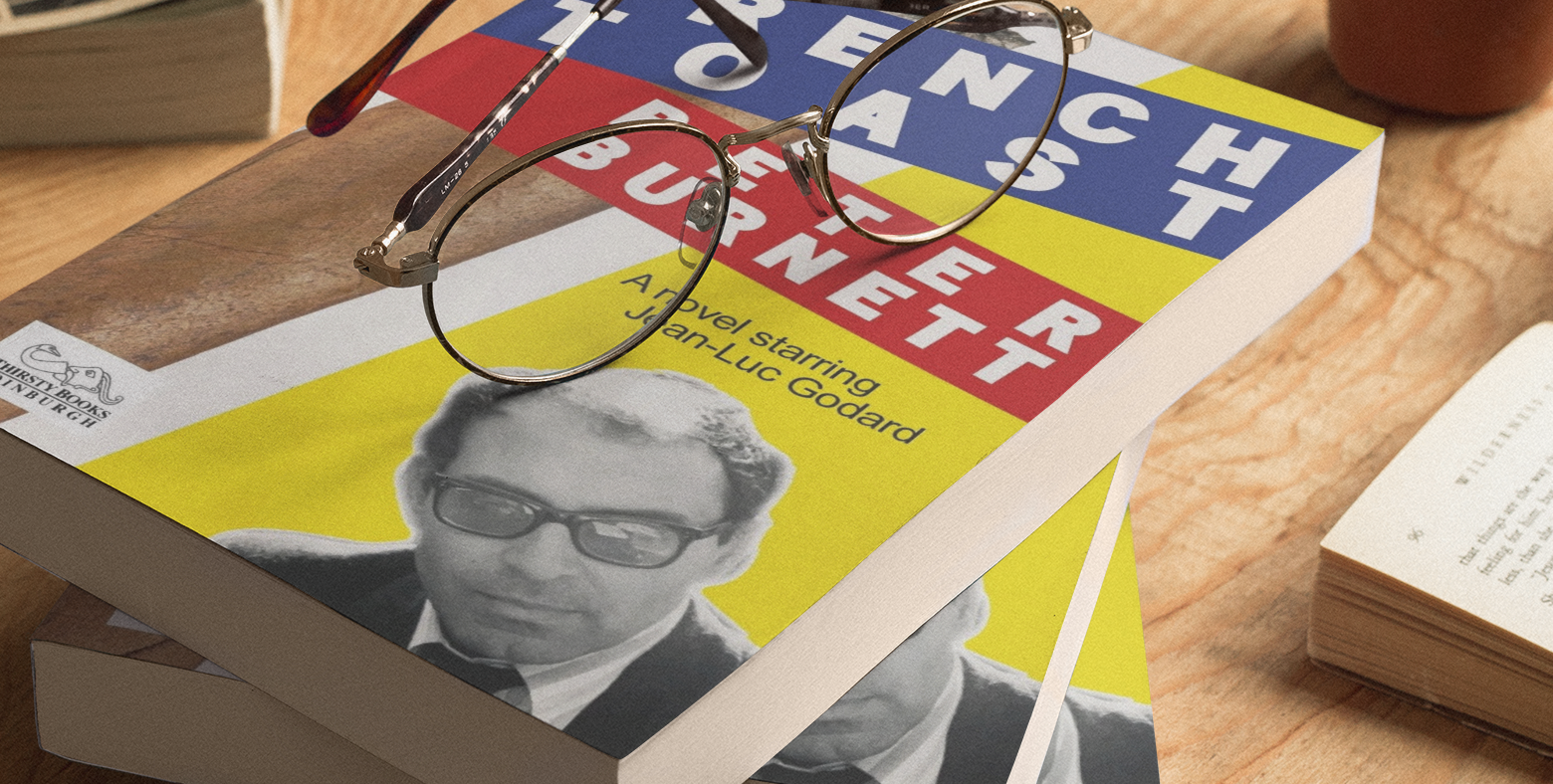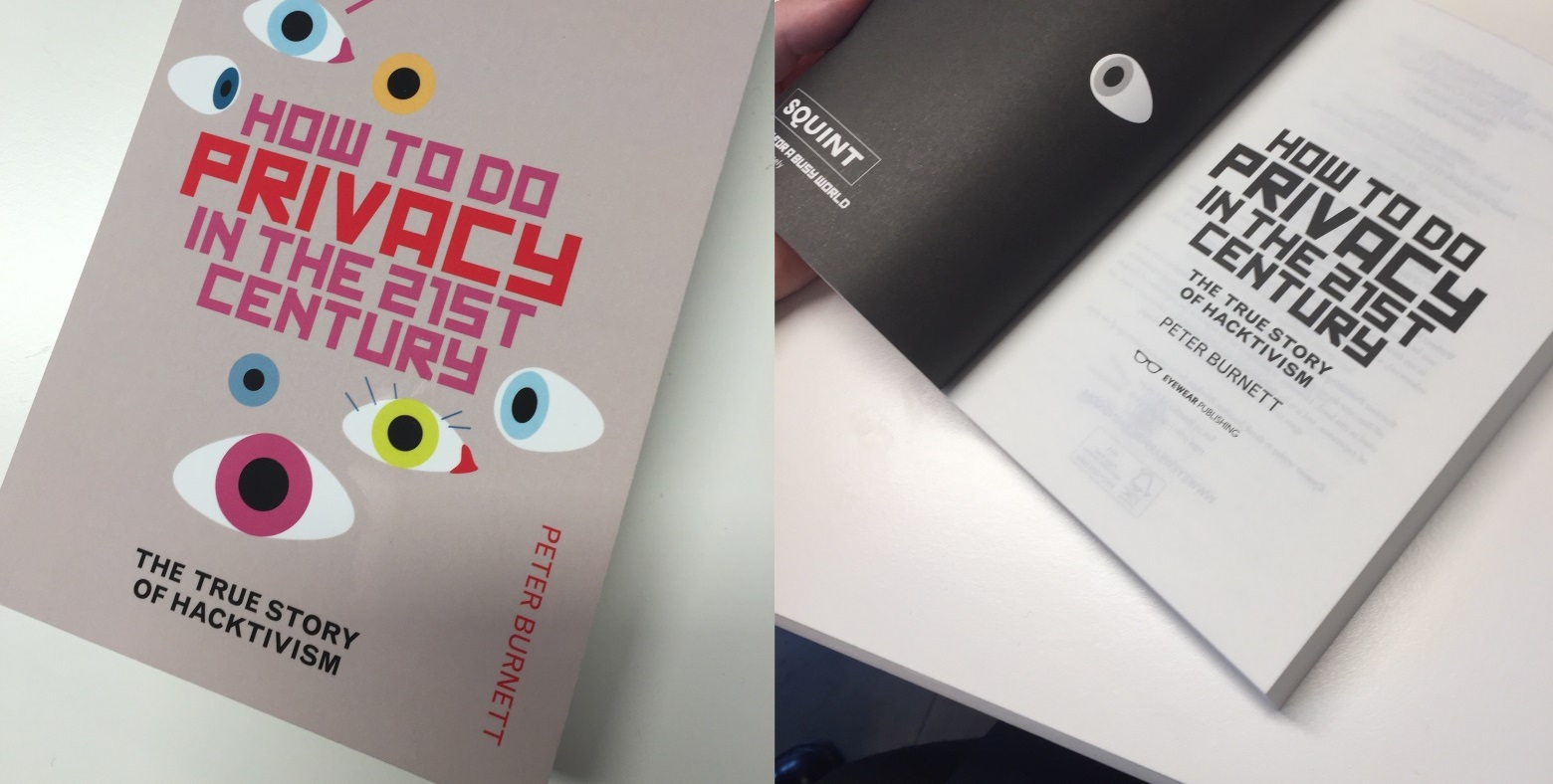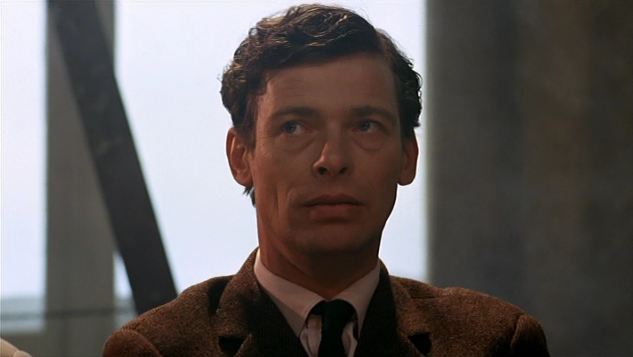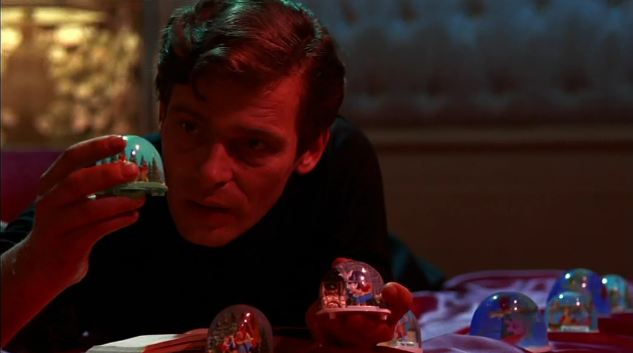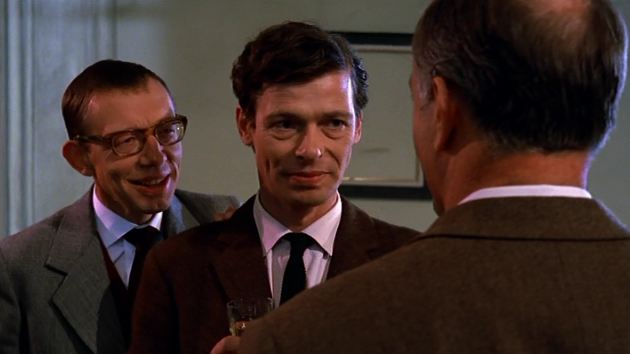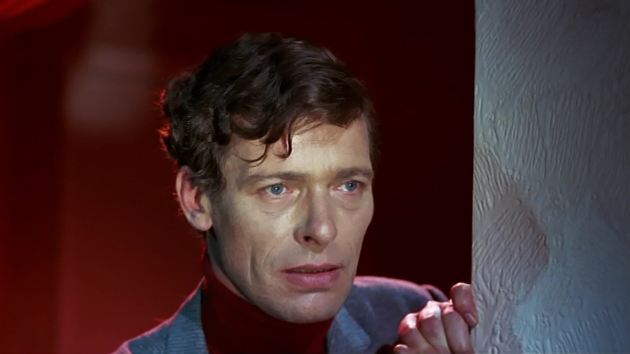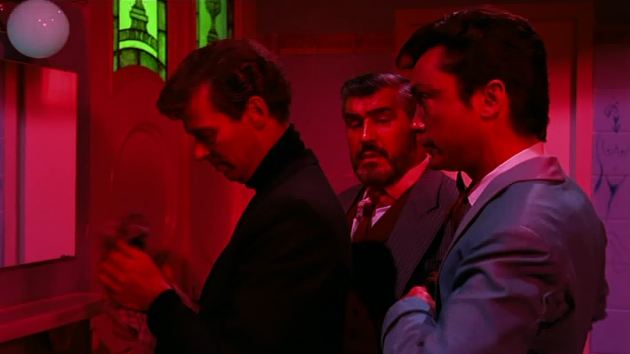In Lola, Esslin played by Matthias Fuchs is a conflicted and multi-layered character, who appears to be moral, being a good friend to Lola, and a prominent anti-war campaigner; but he also works for the corrupt city council that dominate the film, and is responsible for bringing the action to a head, by deviously bringing about the emotional collapse of his boss, Von Bohm, and his boss’ lover, Lola.
Esslin is first seen extolling the virtues of poetry – something folks just don’t care about in this colourful new world. He gazes dreamily into snow globes and is played by Mathias Fuchs as a prude – clever nonetheless, but someone whom in a way can’t keep away from the life he claims to criticise. It’s true that Esslin plays the drums in the bordello, but it’s also true that no one is forcing him to, as he has a perfectly respectable day job. He therefore rather effectively stands for the constant failure of the left, which are unable to do anything about corruption other than tolerate, or even participate.
Esslin is also one of Lola’s many hangers on, and although at the start of the film we may think he is privileged in this status, he is not. If anything, the fact that he is poorer than the rest of Lola’s friends and clients, means she has less interest in him over all. As the first scene ends, it is Esslin’s petulance that cannot bear it anymore, and he beats his drums in frustration at his boss, so that it is plain to see: even the despicable characters in the film are happy with who they are, but Esslin, stranded with his principles, is not.
Esslin meets Von Bohm at Von Bohm’s inaugural planning meeting and the fate of the two men is sealed. They are the two likeable characters in the film, although it will be a tough ride for both. Perhaps because Esslin is left wing, and perhaps because he is interested in poetry, and perhaps because he spends so much time backstage with Lola, we think of him as Lola’s love – but this is a false front. He is of course far too poor for Lola – and if he would like to sleep with her he can pay for it too.
Esslin hangs with a group of people who are against militarisation, an awkward concept for sure in 1950s Germany; and he is another group who are studying Bakunin. When anarchism comes up, it always pays to watch Fassbinder closely. So here in the character of Esslin, we can not only appreciate Fassbinder’s scorn of the militant and theoretical left (which dominated WDR when he was working) while also coupling it with as genuine affection and interest in many of the thinkers that inspired the left, such as here, Bakunin.
It seems effortless, but in this, and embedded in a character like Esslin, Fassbinder can present a full picture. Bakunin and anarchist thought is worthwhile, Fassbinder can say; but see how these people use and abuse it. Half way through the film Esslin leaves the message FASCISM WILL WIN (DER FASCHISMUS WIRD SIEGEN) on an empty typewriter – and even as relatively late as 1981, Fassbinder including this sort of thing in his films must have ensured safety from widespread release – but he often makes quick and sharp asides like this.
It’s a problem all German directors must have faced for decades, and maybe still do. What to say about the War and the German leaders and policy before and during it? To ignore it may be a crime; to dwell on it a pain. So for Fassbinder (see: the beginning of Maria Braun/ the crazy dance in IN A YEAR OF THIRTEEN MOONS etc) – for Esslin to have really left this on a typewriter in the 1950s, is very serious indeed.
Esslin is a liar though and he lies to the innocent Von Bohm about love and the identity of Lola; the greatest crime in a film of many heinous crimes. Sadly, Lola is a cruel character also, hardened into a brittle stick of resentment by the local people and her role as whore. She finds it ridiculous that Von Bohm should challenge the local authority and likens him to Don Quixote. After letting Von Bohm down as to Lola’s identity, Esslin regains moral high ground, and begins talking about a world without ethics, and so forth.
Matthias Fuchs negotiates all of this perfectly, no mean feat as there is a lot to express — frustration, humour, love, fascination and political energy. He has a great manner when it comes to the character of Esslin, making him both highly attractive and yet simultaneously one of the worst and weakest characters in the film. Everything he does is geared to the next scene, and when we get there we always find ourselves less and less enamoured of the man we loved at the start of the film.
Matthis Fuchs is dead now, as of December 31, 2001, and not having access to an obscure library of German film and television, I can’t say I’ve seen too much of him. Still, 62 seems far too young an age to die at, and even though he’s unlikely to make it in to the top 10,000 ranking at the Internet Movie Databse, I still rate his performance in Lola, which will be there for all time I guess.
Matthias Fuchs at de.wikipedia.


